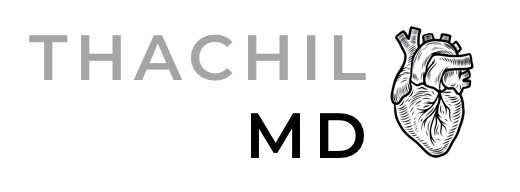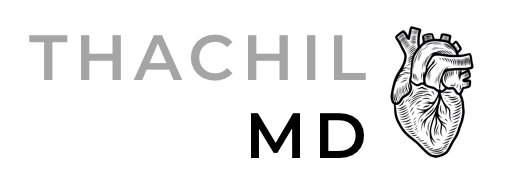Part I: The 2 Kinds of Mindset
Mindset is an elusive and difficult to define concept. I see it as a summation of one’s views and assumptions about oneself and others. It is fluid and can be circumstance specific.
It is a topic of import because mindset can influence success and outcomes in almost all facets of our lives. Whether it is a new job, a deadline, a business or entrepreneurial endeavor, weight loss, conflict resolution, financial goals, or being a multitasking parent--developing a positive mindset can be predictive of and conducive to success.
How we view ourselves and our abilities can directly affect our behaviors.
Broadly speaking, there are two major mindsets, Fixed and Growth. These were originally developed by world-renowned Stanford psychologist Carol S Dweck. She has written and published extensively on this subject, and I highly recommend her book Mindset.
Fixed Mindset
Those with a fixed mindset tend to believe that their abilities, talents, and behaviors are immutable traits that cannot be molded or improved over time. Arguably, having fixed mindset is the mother of self-limiting beliefs and self fulfilling prophecies.
For example, suppose I don’t believe I can improve my tennis game (“I’m not athletic enough for this”). By engaging in this line of thinking, not only have I put an internal limit on my abilities, but I am also less likely to practice and therefore improve, which then only confirms my fixed mindset.
Growth Mindset
On the other hand, those with growth mindsets believe that their abilities and talents can be cultivated and improved over time and experience. Growth mindset suggests that we are dynamic individuals , and our abilities are not set in stone. Rather, they can be expanded and grown with the right practice, exposure, and guidance.
Those with growth mindsets tend to see failure as a learning experience (“failing forward”), while those with fixed mindsets tend to view it as an affirmation of their perceived innate inabilities.
Interestingly, a study published in Child Development and coauthored by Carol Dweck showed that in studies of middle schoolers, believing that intelligence is malleable predicted an upward/positive academic trajectory over two years, whereas those with fixed mindset had a flat trajectory in academic achievement.
Which mindset do you have?
How do you tackle challenges, obstacles, and failure?
Women and Mindset
“I’ve seen so many people with this one consuming goal of proving themselves-in the class room, in their careers, and in their relationships. Every situation calls for a confirmation of their intelligence, personality, or character. Every situation is evaluated: Will I succeed or fail? Will I look smart or dumb? Will I be accepted or rejected? Will I feel like a winner or a loser?”
Unfortunately women have a tendency to adopt fixed mindsets. We also often have a need for social acceptance, both professionally and personally. All of this may start well before adulthood, as girls from a young age are often given direct or indirect messaging that their inherent abilities are fixed. They are also often instructed to act in a “proper” and “ladylike manner” and to indirectly play it safe, whereas boys are held to different standards and often allowed more behavioral leeway (“boys will be boys”). As a result, girls learn to confine themselves and self-regulate their behaviors and beliefs, often at a very young age.
Girls are also given direct feedback that could confirm their fixed mindset (“you’re smart” or “you’re talented”), whereas boys may be more likely to praised for efforts and learning. The problem with this messaging is that when outcomes are tied to innate abilities, a “fixed mindset” girl/woman may see failure or undesirable outcome as a result of lack of intrinsic ability. She may subsequently hesitate to take risks or engage in opportunities that she perceives herself to be “not intelligent enough for”.
The messaging we received from parents, teachers, etc at a young age, can have lasting effects on own perceptions about our abilities and ultimately our confidence.
In a series of studies Dweck conducted in the 1980’s summarized in Psychology Today by Dr.Halvorson, Dweck found that bright fifth grade girls, when given a challenging or complex task, were quicker to give up. Interestingly, the higher the girl’s IQ, the higher the likelihood for her to give up, lose confidence, and act helpless. Boys, on the other hand, found challenges as invigorating, and actually increased their efforts. This boils down to mindset--the girls felt that they were not inherently capable of rising to the challenge; the boys did not insert any self limiting beliefs into their efforts.
Many of the successful women I have interacted with across multiple industries, noticeably have a powerful growth mindset--they believe that they can continue to learn, grow, and improve. They do not set limits or self-limiting beliefs for themselves. Failure is a growth opportunity, and they do not engage in self-sabotage or self-defeat or unnecessary rumination.
We must teach girls and women to adopt a growth mindset. We cannot be our own worst enemies!
Self-Reflection
This is something I am personally constantly working on.
Admittedly, as a young professional in a male dominated field, there are many times I have found myself unknowingly “keel” to the fixed mindset mentality (self messaging such as “I’m not intelligent to do this or learn this.”, or “I don’t belong here” or “this culture is too difficult to change”.).
When these thoughts flash through my head, I find myself coaching myself into a growth mindset:
-I am undoubtedly intelligent enough for this task. Stop being silly.
-I may not know the answer or solution to this problem, but I will find it or develop it.
-I deserve a seat at this table.
-This culture can change, but it will require tough skin and persistent effort.
-This outcome is not what I hoped for; how can I make it better next time?
As they say, you are what you think!



